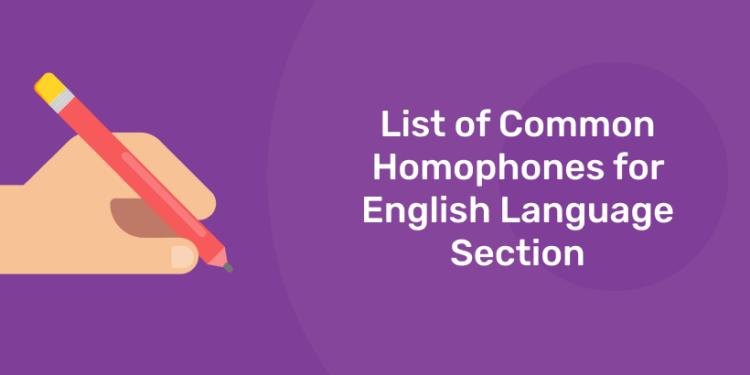Homonyms are two or more words that have the same sound or spelling but differ in meaning. Homophones mean “same sounds” in Latin. There are two or more words, such as knew and new or meat and meet, that are pronounced the same but have a different meaning, origin, and often spelling.
Get the homophones list with meaning below!
Homophones List
Here is a list of homophones for kids that you should check below:
- affect/effect
Use affect to indicate influence: The medicine did not affect her the way the doctor had hoped.
Use effect as a noun: The new medicine had negative side effects. (Note: effect can sometimes be used as a verb meaning to cause/achieve or to bring about – as in “The magician effected his escape with a false door” – but this is mostly a technical term and not used very often.)
- than/then
Use than for comparisons: John is much taller than his brother.
Use then to indicate the passage of time, or when: We went to the park in the morning, and then we left to pick up lunch.
- which/witch
Use which as a pronoun when referring to things or animals: Cora wore her favourite pink shoes, which she received as a birthday gift.
Use witch to mean a scary or nasty person: The Halloween witch decorations must finally come down off of the wall!
- are/our
Are is a verb in the present tense, a form of the verb “to be.”
We are staying at the hotel closest to the stadium.
They are my cousins.
Our is an adjective, the plural possessive form of we.
They will bring our keys to the hotel lobby.
The pleasure is all ours.
Preparing for GKr exams? Check out Entri for guidance!
- accept/except
Use accept as a verb to mean receive: The organization will accept donations through the first of the month.
Use except as a preposition to mean exclude: You may donate all items except car seats and cribs.
- there/their/they’re
there
There can act as different parts of speech, depending on how it is used in a sentence. Most commonly, it is used as a pronoun or adverb.
There will be a lot to eat at the party tonight. (pronoun)
Put the book over there. (adverb)
Their is a pronoun.
The students put their coats in the closet.
they’re is the contraction for they are
They’re going to have practise immediately after school today.
- to/too/two
To can be a preposition.
We’re going to the park.
To can indicate an infinitive when it precedes a verb.
We want to help in any way we can.
Too is an adverb that can mean excessively when it precedes an adjective or adverb.
I ate too much ice cream for dessert.
Too is a synonym for also.
I ate too much ice cream for dessert, too.
Two is a number.
Marcy ate two pieces of pie.
I have two books I’d like to read.
Check out the Entri App for more details on GK exams!
- bear/ bare
Use bear when referring to the large mammal or to indicate the act of holding or supporting: How did that brown bear open the security gate at the campsite? | The wagon can hardly bear the weight of the load.
Use bare as an adjective indicating lack of clothing or adornment: His bare neck burned in the direct sunlight.
- one/won
Use one when referring to a single unit or thing: I have one more muffin left before the box is empty.
Use won as the past tense form of the verb “to win”: Shelly’s team won the tournament and celebrated with ice-cream sundaes!
- brake/break
Use brake as a verb meaning to stop or as a noun when referring to a device used to stop or slow motion: The bike’s brake failed, which is why he toppled down the hill.
Use break to indicate smashing or shattering or to take a recess: My back will break if we put one more thing in this backpack. OR Use break as a noun to indicate a rest or pause: We took a water break after our first set of drills because it was so hot outside.
- it’s/its
It’s is the contraction for it is.
It’s raining today, so the baseball game will be cancelled.
Its is the possessive form (“possessive” means belongs to) of it.
The cat is licking its paws.
- principle/principal
Use principle as a noun meaning a basic truth or law: Many important life principles are learned in kindergarten.
Use principal as a noun meaning the head of a school or organization, or a sum of money: The principal is a well-respected member of the community because of the hard work and effort she puts forth in her position.
There are many such difficult homophones with meanings that you can check and learn for your English Section in Government Examination.
Subscribe to Entri for more details on GK exams!
Entri provides video classes as well on various important topics by the excellent faculties. One will get revision modules, monthly tests based on the classes. You can download the app free of cost and join the class. It also gives you access to clarify your doubts.












